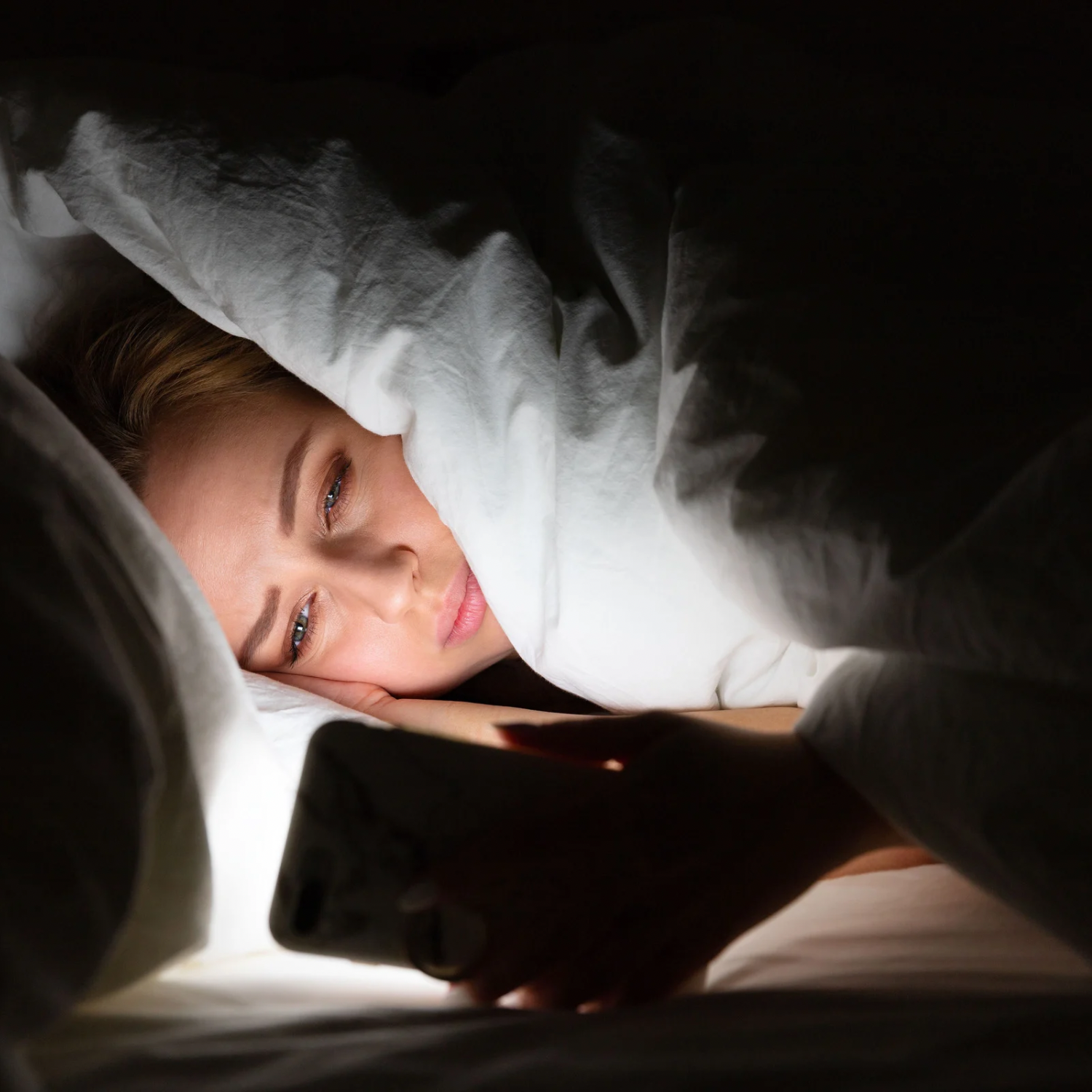Digital Detox: How to Unplug and Sleep Better
You crawl into bed, exhausted, just going to check your phone for a second - and suddenly it’s midnight, you’re knee-deep in a random video about penguins and sleep feels further away than ever. Sound familiar?
Screens have a sneaky way of keeping us awake, and it’s not just because we lose track of time. The blue light, the constant notifications and the endless scroll all mess with our sleep in ways we don’t even realise.
But here’s the good news: a mini digital detox, especially in the evening, can transform your sleep. And no, I’m not about to tell you to give up your phone completely. Let’s talk about why screens affect your sleep and how to unplug (without going full-on hermit).
How Screen Time Affects Your Sleep
Blue Light Blocks Your Sleep Hormone: Your body relies on melatonin to feel sleepy - but blue light from screens suppresses melatonin production, tricking your brain into thinking it’s still daytime. Less melatonin = harder to fall asleep.
Your Brain Stays on High Alert: Scrolling, messaging or watching intense TV before bed keeps your brain wired. Even if you don’t feel stressed, your nervous system is still in “go mode,” making it harder to wind down.
The Doomscrolling Effect: Checking emails, reading the news, or getting stuck in a social media rabbit hole? Instant recipe for bedtime overthinking. Instead of relaxing, your brain is busy processing information, stressing over headlines or mentally replying to that email you should’ve ignored.
Ready to reduce your screen time and improve your sleep?
How to Reduce Screen Time Before Bed (Without Going Cold Turkey)
1. Set a “Screen Curfew”
Give yourself a screen cut-off time, ideally 60 minutes before bed. If that feels impossible, start with 30 minutes and work your way up.
✔ Set an alarm or reminder to switch off devices.
✔ Charge your phone outside the bedroom (or at least away from your bedside).
✔ If you need your phone for an alarm, use Do Not Disturb mode to stop notifications.
2. Swap Scrolling for a Wind-Down Routine
If you’re used to winding down with Netflix or a social media scroll, you need a relaxing replacement - otherwise, you’ll be back on your phone in five minutes.
Try swapping screens for:
📖 A book (fiction works best—non-fiction can keep your brain too active)
🛀 A warm bath or shower (relaxes your body and signals sleep time)
📝 Journaling or gratitude practice (see my blog on gratitude for sleep!)
💨 Breathwork, Yoga Nidra or a gentle stretch (even 5 minutes helps)
3. Use “Night Mode” on Your Devices
If you have to be on a screen late, reduce the impact:
✔ Turn on Night Shift (Apple) or Night Mode (Android) - This lowers blue light exposure.
✔ Dim the screen brightness - The lower, the better.
✔ Use dark mode - Less harsh on the eyes.
✔ Try blue-light-blocking glasses - Not perfect, but better than nothing!
4. Create a Tech-Free Bedroom (or a “Sleep-Friendly” One)
Let’s be real - not everyone wants a 100% phone-free bedroom. But you can make your space less screen-heavy:
✔ Swap your phone alarm for a real alarm clock.
✔ Keep a book, journal or magazine by your bed instead of your phone.
✔ If you watch TV before bed, choose calming content (no thrillers or cliffhangers!).
The Takeaway
You don’t have to ditch screens completely, but setting boundaries around tech - especially at night - can make a huge difference to your sleep.
Tonight, try switching off just 30 minutes earlier than usual. Your sleep (and your morning self) will thank you.
Are you up for a mini digital detox?
Sleep well,
Trix
P.S. My 10 Min Wind Down Toolkit is there for help you create that great evening routine, without that phone, so you are calm, not wired, before bed!
